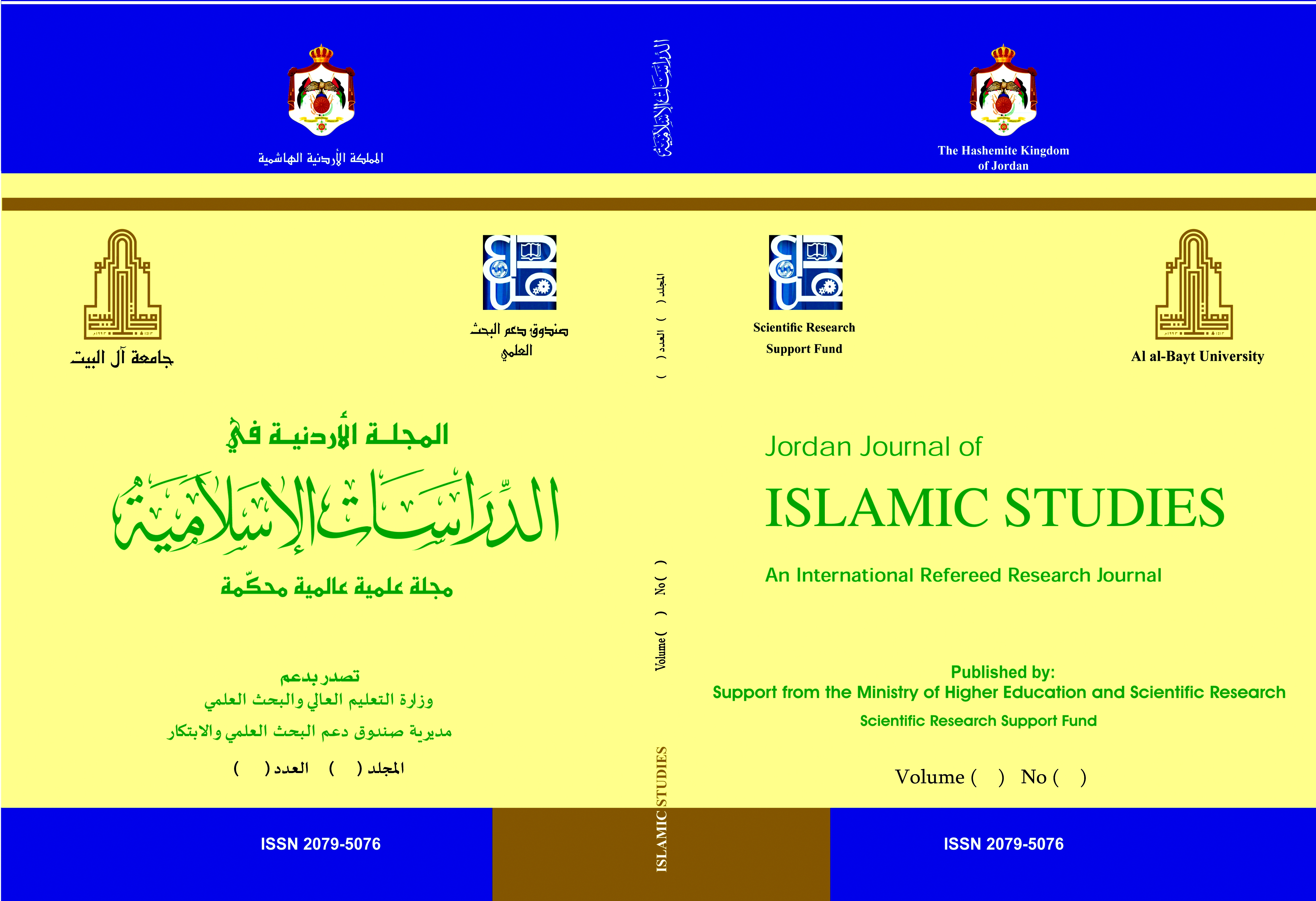Jordan Journal of Islamic Studies

Abstract
هدفت هذه الدراسة إلى التعرف على موضع الخلاف بين المفسرين في الآية، وسبب الخلاف وأقوال المفسرين وأدلتهم التي اعتمدوا عليها، ومن ثم الموازنة بينها، بهدف الترجيح أو الجمع بين الأقوال.
فاعتمدت الدراسة مناهج الوصف والاستقراء والمقارنة. وتوصلت إلى مجموعة من النتائج أهمها: اختلاف المفسرين في تحديد دلالة لفظ "ينكح" من الآية الثالثة من سورة النور إلى قولين رئيسيين: الزواج والوطء. كما تمثل محل النزاع بين المفسرين في ثلاث قضايا رئيسية: سبب نزول الآية، صيغة الخبر في الآية، الإحكام والنسخ.
وقد استدل المفسرون بجملة من الأدلة المتصلة بالقرآن والحديث واللغة وأسباب النزول والإجماع، وقد سجلت الدراسة أبرز الإشكالات المتعلقة بالأقوال والأدلة ووجوه الاستدلال. وتبين أنّ الخلاف بين المفسرين في هذه الآية خلاف حقيقي، وقد خلصت الدراسة إلى ترجيح دلالة لفظ النكاح على معنى الزواج، وكون الآية الكريمة استئناف بياني أريد منه التمهيد لا التشريع، فالآية هنا غرضها التهويل والتفظيع لا الإباحة.
الكلمات الدالة: الخبر، النهي، عقد النكاح، الوطء، الزنا، التفسير المقارن.
This study aimed to identify the area of disagreement between the interpreters in the verse, the reason for the disagreement, the sayings of the interpreters, and the evidence on which they relied, and then balancing them, with the aim of weighting or combining the sayings. The study adopted the description, extrapolation, and comparison methods, and it found a set of results, the most important of which are there is a difference between the interpreters in defining the meaning of the word “yankih” from the third verse of Surat Al-Nur in two main sayings: marriage and intercourse. It also represented the subject of conflict between the interpreters in three main issues: the reason for the revelation of the verse, the wording of the
predicate in the verse, the rulings, and the abrogation.
The interpreters deduced results using evidence related to the Holy Qur'an, hadith, language, revelation reasons, and consensus. The study demonstrated the problems related to interpretations, evidence, and reasoning. The disagreement between the interpreters in this verse was found to be genuine, and the study concluded that the meaning of the term “yankih” was overriding the meaning of marriage and that a dignified verse was an appeal that was intended to make a preface, not to legislate, for the verse here is intended to intimidate and terrorize, not permissiveness.
Keywords: Predicate, Prohibition, Matriomony contract, Intercourse, Comparative interpretation.
Recommended Citation
Melhem, Alaa and Nuseirat, Jihad
(2022)
"دراسة تفسيرية مقارنة لقوله تعالى: الزَّانِي لَا يَنكِحُ إِلَّا زَانِيَةً أَوْ مُشْرِكَةً وَالزَّانِيَةُ لَا يَنكِحُهَا إِلَّا زَانٍ أَوْ مُشْرِكٌ وَحُرِّمَ ذَٰلِكَ عَلَى الْمُؤْمِنِينَ[3: النور] A comparative interpretative study for Almighty saying: "الزَّانِي لَا يَنْكِحُ إِلَّا زَانِيَةً أَوْ مُشْرِكَةً وَالزَّانِيَةُ لَا يَنْكِحُهَا إِلَّا زَانٍ أَوْ مُشْرِكٌ وَحُرِّمَ ذَلِكَ عَلَى الْمُؤْمِنِينَ" From Surat Al-Nur,"
Jordan Journal of Islamic Studies: Vol. 18:
Iss.
4, Article 20.
Available at:
https://digitalcommons.aaru.edu.jo/jois/vol18/iss4/20

